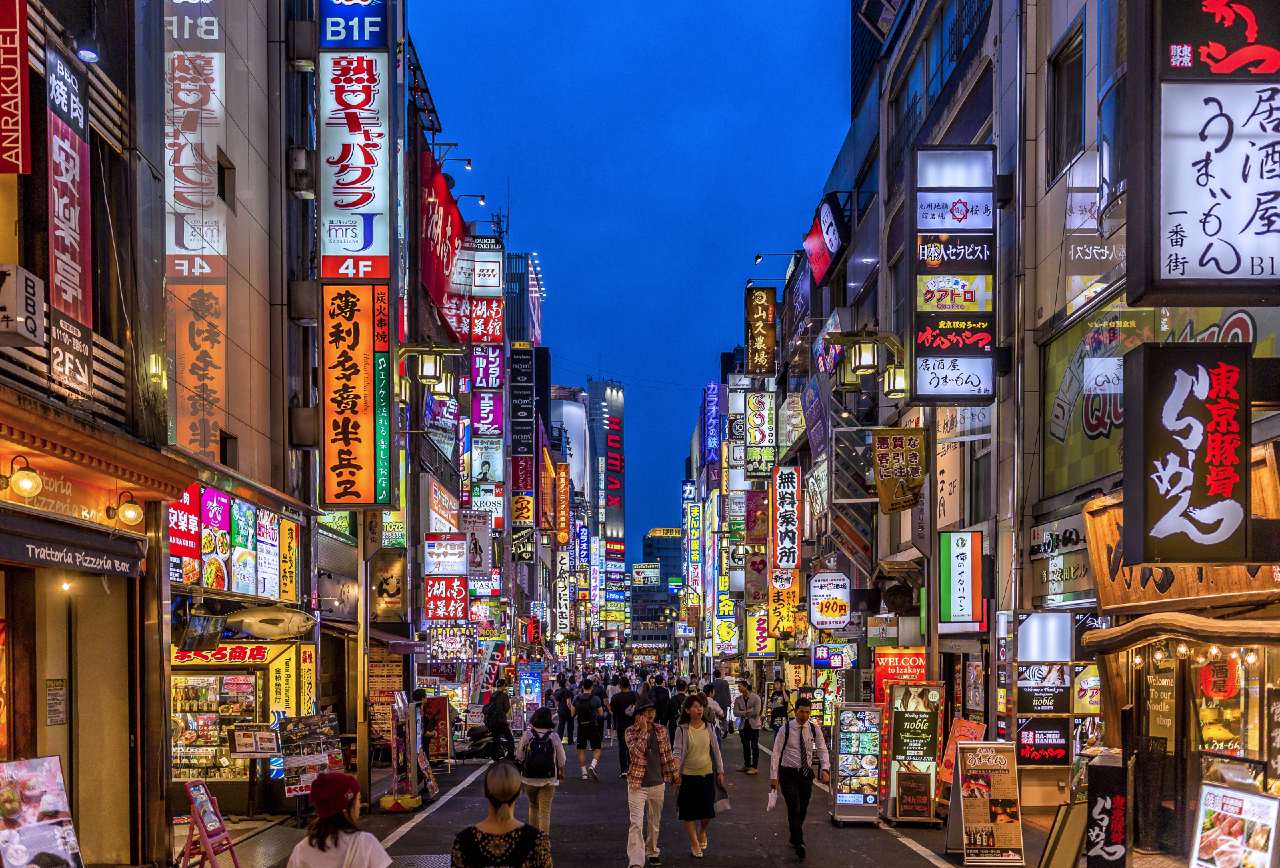There are hundreds of different reasons you might want to translate content into Japanese. And there are also plenty of ways you can go about doing this.
The simplest but least effective option is putting your content into Google Translate. As well as stumbling when it comes to words that just don’t have an obvious counterpart in another language, this method fails to incorporate important contextual factors (which is extremely important in Japan’s high context culture).
Humans, in some capacity, are the best route to translating your text so that it makes sense in Japanese and also has the intended impact. However, it can be incredibly hard to find the right individual or agency to work with if you’re completely new to the country.
For inbound businesses starting their Japanese journey in the capital, we offer some advice on how you can find the right Japanese translation service in Tokyo.
Table of Contents
- Why is good translation so crucial in Japan?
- Find a company that specializes in your content needs
- Be clear about what you need from your translation company
- How to find translation companies in Tokyo
- Look for English account management
- Choose translation companies that are located in Tokyo
- Look for signs of credibility and competence
- How to arrange a meeting with translation agencies
- How much does Japanese translation cost?
- Final tips for hiring translation services in Tokyo
Why Is Good Translation So Crucial in Japan?

Poor translations are easy to spot for native Japanese speakers. Mistakes or subtle variations from the standard that is expected can make your content seem clumsy and you (as a brand or individual) seem amateur and unprofessional.
Good communication in addition to visual presentation is a fundamental aspect brands are judged on (especially Western ones) and a deciding factor in whether consumers will perceive you as a reputable company.
The content you publish online and the Japanese keywords you choose also play a huge role in your SEO performance — determining how Google will display your posts or service pages in search results.
Ultimately, good translation or localization (a more comprehensive approach to translation), can have a direct impact on your sales and other goals in Japan (with the right words contributing to your objectives more effectively).
HB Pro Tip: Just because your content is accurately translated in a technical sense, this doesn’t mean it performs its role as effectively as it should. Sometimes you need to take a step back and approach your content from another angle to convey the message — even changing the source text completely if necessary.
Learn How to Avoid the Most Common Translation Fails in Japan
Find A Company that Specializes in Your Content Needs
We would say that finding someone who has experience handling your content needs is the first thing you need to focus on. This should govern the kind of prospects that you shortlist when browsing the many providers or translation services in Tokyo.
For specialized projects such as translating technical information or content that covers niche topics that require high levels of contextual knowledge, it’s important to look for translators that have the clear capability to do justice to your source content.
Equally, while translators are often naturally creative individuals, you can’t always rely on them to incorporate the necessary creative flair into your content.
So, if you need to retain a sense of humour or satire, for example, you’ll need to ensure the individual translator or team working on your content have the ability to imbue your content with the right tone. It’s a skill that not everyone has.
HB Pro Tip: Remember that things like comedy or implied meaning will function very differently in Japan, where language and meaning draw from a history, culture, and body of references that is unique to the country.
Common Industries and Content Types Requiring Translation in Japan
- Marketing and advertising content
- App development
- Video games
- Speeches
- Transcripts (TV and Movies)
- Technical and training manuals
- Legal documentation
- Financial documentation
- Internal communications
HB Pro Tip: Don’t be afraid to ask whether your prospective translation service has the right tools to handle the kind of content you have. Regardless of your specific requirements, you’ll need assurances that the profiles of the translators you are working with match your needs.
Be Clear About What You Need from Your Translation Company

Being specific about what you need from your translation partner in Japan will help you both. A few common requirements we encounter regularly are below:
| Basic translation of existing English text into Japanese | Some brands are content with basic translations into Japanese so they can launch their websites in the local market as fast as possible. Sometimes this is just for appearances and the quality of the translation or its comprehensiveness isn’t the paramount concern. This could be due to the company being at an early stage of market entry or budget limitations. |
| Website localization | Commissioning a full localization of your website in Japan is the only way to ensure you have the best chance of connecting with the local market. This includes changing headers and descriptions so they achieve their intended effect, rather than simply work as direct translations of your English text. |
| Brand localization | Some brands entering Japan are looking to adapt more than just their written content and will be seeking wider localization services so they can position themselves better in the local market. This could involve adapting core brand messages and even visual elements. |
| Original Japanese creative content development | Translation alone isn’t enough for some brands who are more interested in “transcreation” and the development of original Japanese content for the local market. These companies might wish to work with Japanese copywriters and marketers who can develop new angles and content pieces that align with their English content. |
| An ongoing working arrangement | Rather than commissioning translations ad-hoc or based on specific projects, some companies are actually looking for partners who they can collaborate with on an ongoing basis to continually adapt English content so that it is suitable for the Japanese market. This could cover several types of translation jobs such as marketing, internal communication, customer support and product descriptions. |
Whatever category you fall into, make sure you communicate this to your prospective translation services clearly.
At Humble Bunny, before engaging in any translations of individual articles or pages, we like to start with a broader localization process where we might even adapt an entire website for the local market.
How to Find Translation Companies in Tokyo
Internet searches can provide you with a great number of initial options, but they’re not completely reflective of the full translation landscape as many competent agencies get business primarily through word-of-mouth from existing clients. We’d recommend trying all of the below.
- Ask your network
- Online directories
- Freelance websites
- Google searches
- Social media reach-outs
HB Pro Tip: We find that one of the best ways to find service providers in Japan is to ask your network. A social media reachout on somewhere like LinkedIn is a great place for getting recommendations from other companies. If you can tap into a community of foreign business owners, you may also get a deeper insight into how best to find and work with a translation company from a perspective that matches your own.
Look for English Account Management

It can be frustrating working with an agency that offers little or no English account management support. You can probably guess the kind of challenges and hurdles you face when trying to liaise with a Japanese team of translators if you can’t speak their language.
It’s also worth avoiding companies that don’t build ongoing discussion into the process. To get things right, it’s normal to carry out a number of revisions where you can collaborate more fluidly. And for this to happen, you’ll need an English-speaking point of contact.
HB Pro Tip: If possible, ensure that content is checked thoroughly by at least one Japanese native speaker on your side of the fence. Whether it’s someone on your marketing team or another individual who speaks Japanese, it’s important that you don’t simply trust everything to your translation team. Even if they’re doing their utmost to get the job done to your requirements, mistakes or misinterpretations can easily find their way into the translated content.
Choose Translation Companies That Are Located in Tokyo
A local presence is a good indicator your agency will be able to help you navigate your new market effectively. Many companies have international offices and offer services for several different languages, merely outsourcing their
Japanese translation work to other, smaller agencies (who do actually reside in Japan) as and when they need to.
Choosing a company headquartered in Tokyo can help you avoid agencies who simply farm their projects out to freelancers who don’t have a good enough grasp of the local context.
Look for Signs of Credibility and Competence
A few things that are good indicators of overall competency and the ability to handle your project include:
| Testimonials | Mentions of other brands and short snippets from CEOs praising the work of your prospective translation company are good signs, but don’t be afraid to ask for more detailed feedback, case studies and references from past clients. |
| Size of team | Some companies may command dozens, if not hundreds of translators. Others may work with only a handful of people. While size doesn’t mean everything, understanding how many human translators will be assigned to your project can help you determine how much attention your project will get. |
| Western client history | A healthy amount of foreign clients is always a good sign. If these are repeat or long-term relationships then even better. |
| Confidentiality | If you’re working with an agency that outsources some of its translation work, check that they make their network of translators and editors sign confidentiality agreements. |
How to Arrange a Meeting With Translation Agencies

A face-to-face meeting with translation services in Tokyo is ideal for getting the relationship off to a good start. And being prepared with all necessary documents, such as examples of your content, important deadlines and a clear set of requests and guidelines, will help the process go smoothly.
Questions to Ask During a Meeting
- Who will be assigned to the project and will these individuals be consistent throughout?
- What is the process for reviewing and editing a translated piece of content?
- What role does machine translation (if any) play in the process?
- What quality control measures will be implemented?
- Will there be English-speaking account management assigned to the project?
If you’re interested in learning about Japanese business etiquette and our tips on building strong relationships here, take a look at our blog: Japanese Business Culture – A Practical Guide
How Much Does Japanese Translation Cost?
Quotes for translation services in Tokyo can vary widely. Access to machine translation software or client management support can affect pricing models and how much you end up paying can change depending on the size of your project or the level of ongoing work you will need.
A higher price doesn’t mean you’ll be getting a better service but be wary of quotes that seem unusually low. This may reflect the fact that translation work will be basic in nature or reliant on external translators, rather than in-house professionals who have experience handling projects like yours.
While we don’t offer translation as a standalone package set apart from wider localization and market entry services, we’ve seen some companies offer prices of around 1,000-1,500 per 100 words. We’ve also seen others charge far more than this for additional account management, research, and editing work.
Final Tips for Hiring Translation Services in Tokyo

Unless you are translating a one-off piece of content into Japanese, we would recommend you plan your translation projects more holistically through a localization process.
With sufficient attention paid to cultural differences, you have a greater chance that your content will truly resonate with your audience. This sometimes requires taking a step back and allowing content to be approached more creatively rather than just focusing on technically accurate translations.
Need help entering the Japanese market? Let’s chat on how we can help.